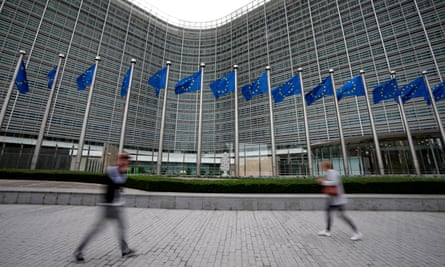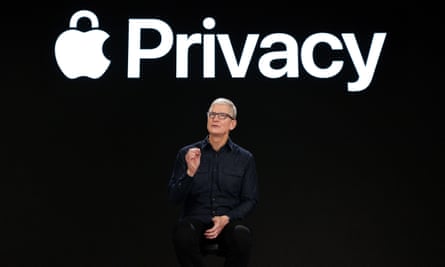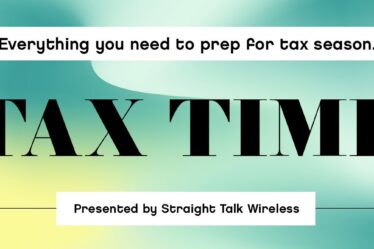
Late last week, Europe’s largest consumer rights group filed a complaint against Meta over paid versions of Instagram and Facebook that give users ad-free versions of the social media sites. The European Consumer Organisation (BEUC) says the subscriptions – €9.99 per month for the web versions and €12.99 for the apps – are too expensive.
“The tech giant’s pay-or-consent approach is unfair and must be stopped,” the BEUC said. The organisation, which filed its complaint with the EU’s network of consumer protection authorities, called the prices “very high” and said Meta is using “unfair, deceptive and aggressive practices” while giving consumers “misleading and incomplete information”, according to a report by Ars Technica.
A month ago, Meta launched the ad-free, subscription-only versions of Facebook and Instagram in the EU to comply with new privacy laws. The EU’s data regulator had adopted a law, first used in Norway, that threatened the foundation of Meta’s business model: tech companies could not require that users agree to tracking and targeted advertising to use a company’s products. There had to be another option, according to the law: “Users must have the freedom to individually refuse consent to certain data processing operations … without being forced to completely waive the use of the service.” The law requires “an equivalent alternative” and specifically mentions versions of products that cost money instead of monetising data.
Meta responded to the rule with paid versions of Instagram and Facebook, saying “a subscription model, like the one we are announcing, is a valid form of consent for an ads-funded service”. In late October, it wrote a blogpost saying: “The option for people to purchase a subscription for no ads balances the requirements of European regulators while giving users choice and allowing Meta to continue serving all people in the EU, EEA and Switzerland.”
BEUC believes this option does not go far enough. It argues that consumers don’t have a choice whether to opt out of social networks, and that Meta has consumers’ social connections in a chokehold: people who leave the services, it says, lose their contacts and interactions, often built up over years. If they stay, consumers are tracked, or they have to cough up; and the cost is too high, it says, whether it’s your privacy or your hard-earned money.
Meta did not respond to a request for comment. It has previously said that its subscription fees are similar to those provided by Google-owned YouTube, Netflix and Spotify’s premium offering.
Paul Barrett, deputy director of the NYU Stern Center for Business and Human Rights, threw cold water on the BEUC’s claims: “The suit appears to turn on a highly subjective question: whether Meta’s price for ad-free service is ‘reasonable’. It seems to me, subjectively, that at the price levels currently being cited, the monthly fee is not exorbitant or extortionate, assuming that it is clearly disclosed and that Meta doesn’t pull a bait-and-switch by jacking up the price in the near future.”
The price of privacy
Technology has made luxuries out of many things we once took for granted. Human contact is one. It’s expensive; screens are cheap. My last dentist appointment involved seeing a doctor through a tablet who never touched my teeth. The newest screen was once seen as a status symbol; now quitting them is the more glamorous option.
Privacy may be another luxury that many cannot afford. The introduction and acceleration of all types of technology over the past two decades has radically changed how we conceive of a private life. In some arenas, what passed for privacy before 2000 no longer exists. In advertising in particular,companies collect vast reams of data from billions of people, making your business their business.
“Meta is misleading [customers] by presenting the choice as between a paying and a ‘free’ option, while the latter option is not ‘free’ because consumers pay Meta through the provision of their data, as past court rulings have already declared,” the BEUC says.
Carl Tobias, chair of the University of Richmond School of Law, took a favorable view of the ideas expressed in the complaint but said the suit may still be a long shot because the subscription versions of the social networks are so new. “BEUC’s arguments seem sensible, but it is unclear whether BEUC will prevail in part because the suit appears to challenge a product that barely exists,” he said. “Unfortunately, online privacy has become a luxury item in the modern world, and BEUC seems to be saying that big tech companies like Meta with its latest plan will exacerbate the situation.”
Another privacy advocacy group, the non-profit NOYB – European Center for Digital Rights, has filed a complaint about Meta’s pricing with the Austrian Data Protection Authority, Ars Technica reports. The group cites an anonymous complainant who could not pay Meta’s fees. The group said Meta’s fees amount to a system of “paying the rent or having privacy”, and that privacy should not be a privilege only the wealth can afford.
The question of whether privacy has become the privilege of the elite is old. In 2010, Mark Zuckerberg said privacy was no longer a social norm at all, presumably a justification for changing the default settings for Facebook’s 350 million users to make them less private. In 2014, a New York Times columnist added up how much her digital privacy cost her per year – $2,200 on devices and services, to say nothing of the time taken fending off intrusions. This newspaper, meanwhile, has argued, in the wake of a 2019 leak of German politicians, artists, and journalists’ information, that privacy is a fundamental human right.
NOYB did its own accounting, tabulating a theoretical privacy bill if the ad-free version of every app on an average smartphone owner’s phone charged €13. “Given that the average phone has 35 apps installed, keeping your phone private could soon cost around €8,815 a year,” the group said. The possibility of subscribing to multiple apps to ward off ads may not be as far away as it seems. In October, TikTok confirmed it was testing an ad-free subscription version of its app that would cost $4.99 per month.
Privacy is a human right. The question in 2023 is how much should privacy cost. Even tech companies, the largest holders of personal information in the world, will tell you they agree. But participating in today’s society more often than not requires the use of the internet, which in almost all cases entails behavioural tracking. Should surveillance of our every click be the price of entry? Perhaps not. However, in practical terms, maintaining a privacy online demands expertise, time and likely spare cash. Most users accept everyday incursions on their online privacy – after all, billions of people have made the tradeoff to use Facebook and Instagram in their current, data-hungry forms.
How much would you pay for privacy?
So what would you pay for an online life unencumbered by advertising? For ad-free Reels on Instagram? Would you pay at all? Quantifying that cost may be the next frontier in social media.
after newsletter promotion
The path of YouTube’s business may indicate that consumers are willing to pay for ad-free versions of their favourite sites and apps. The Google subsidiary has offered YouTube Premium since 2014. Some 80 million people pay for the service as of 2022, according to YouTube, though that figure is mixed with subscribers to YouTube Music, a product closer to a streaming service. Perhaps there is a similar market awaiting Facebook, Instagram and TikTok.
Whether consumers are prepared to pay Meta’s prices will depend on whether they think ad-free versions of Facebook and Instagram and the greater online privacy their promise are worth the cost.
How other tech giants handle privacy

Among the tech giants, Apple is the one that has made privacy most central to its brand. Google might prefer you not think about the amount of your data it has. To hear Apple tell it, the power of privacy comes at a premium. The iPhone maker markets itself as a luxury goods company, and it pleads the case that Apple devices, which enjoy a reputation of being more private and thus more expensive than their Android counterparts, are worth paying a premium for. Last year, Apple plastered billboards across the world with the slogan “Privacy. That’s iPhone”, and its privacy page still reads “Privacy. That’s Apple.”Researchers allege however that Apple labels its privacy settings deceptively. The company is facing more than a dozen lawsuits for allegedly lying to users about privacy settings. (In response to stories from last January about the company’’s privacy policies and lawsuits, Apple spokesperson Shane Bauer told Wired: “Identifiable information is never shared with third parties and is not used to track users across apps and websites.”)
Paid versions of Instagram and Facebook may be an attractive option for another reason: tech companies are cramming more ads into their products. Apple’s “Ask app not to track” setting, which allows users to stop an app’s tracking of their behavior if the app isn’t open, harpooned Meta’s business. CEO Zuckerberg estimated the innocuous iOS pop-up cost his company at least $10bn.
To compensate, Silicon Valley’s behemoths are increasing the number of ads they show. A non-exhaustive list: Apple has added ads to the App Store and more ads to Apple TV+ in the past two years; Netflix has introduced an ad-supported tier; and Amazon now makes more money from ads than from Prime. The number of ads in Gmail, meanwhile, is increasing and Microsoft has even added ads to to Outlook, a work email client. Non-tech companies like Marriott, Best Buy, CVS and Dollar Tree are launching their own proprietary online ad networks. Walmart makes $2bn from ads per year.
Ads are even more everywhere than they used to be. And you’ll pay for them one way or another.
The wider TechScape




